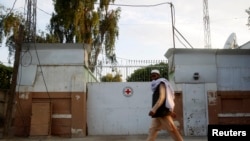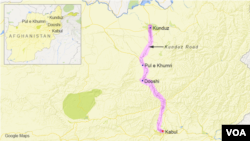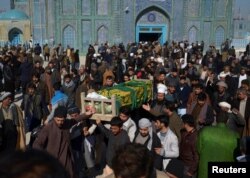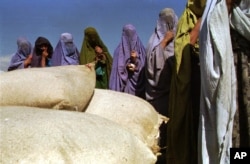The International Committee of the Red Cross (ICRC) has decided to “drastically” reduce its presence and relief operations in war-torn Afghanistan, citing a series of recent attacks that have killed seven of its staff, including a foreigner.
“This is a difficult moment for the ICRC and the staff. After 30 years of continuous presence in the country, we are reducing our presence and operations,” said Monica Zanarelli, the aid group’s county head, on Monday.
“But let’s be very clear, we are not leaving Afghanistan,” she explained to reporters in Kabul.
There have been security incidents over the past 30 years undermining relief activities, said Zanarelli, but three direct attacks in northern Afghanistan since last December have particularly affected the ICRC on the whole.
They included last month’s attack on the biggest rehabilitation center in the country located in the city of Mazar-i-Sharif, in which a 38-year-old Spanish physiotherapist, Lorena Enebral, was shot and killed by a patient inside the orthopedic facility.
“This last incident has really hit us in our heart in a place that has always been considered as the safest place for everyone in Afghanistan treating the most vulnerable people for decades and being hit directly by a long-term patient has been really a shock not only for us in Afghanistan but for the whole organization across the world,” she said.
The ICRC’s office in the northern volatile provinces of Faryab and Kunduz will be closed by end of the year while the main office in Mazar-i-Sharif, capital of Balkh province, will be “seriously downsized,” explained the country head.
Among other latest security incidents that prompted the ICRC to scale back its Afghan operations was the abduction of an ICRC staff member in Kunduz in December 2016 who was released four weeks later.
The incident was followed by the killing of six staff and the abduction of two others after militants attacked an ICRC relief mission passing through the northern Jawzjan province.
The abductees were released in early September, just days before the Spanish physiotherapist was gunned down in Mazar-i-Sharif.
These incidents left the organization with “no other choice but to drastically reduce” its relief activities in the country, said Zanarelli. She said the ICRC is still not clear about reasons for these attacks and refused to speculate on who could be behind them.
The Taliban has denied involvement in any of the attacks on ICRC. Some local media reports said militants linked to the Islamic State were behind some of them.
Currently, ICRC has 1,800 staff in Afghanistan, including 120 foreigners, she said.
U.N.-led relief groups say millions of war-hit and poverty-stricken Afghans are in need of urgent humanitarian assistance across Afghanistan and the intensified conflict continues to uproot tens of thousands of families.
While Afghan security forces are struggling to contain the Taliban insurgency in most of the country’s 34 provinces, IS loyalists have also stepped up attacks in Afghanistan.
U.N. officials say conflict related Afghan civilian casualties have already hit new highs this year.







